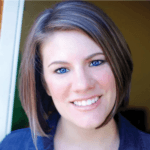 Last week I attended a high school graduation party for Avery Lake, the oldest child of Kyle and Jennifer Lake. Kyle was killed during a tragic accident at University Baptist Church in Waco, Texas, in 2005. During a baptism, he was electrocuted due to a defectively wired hot water heater.
Last week I attended a high school graduation party for Avery Lake, the oldest child of Kyle and Jennifer Lake. Kyle was killed during a tragic accident at University Baptist Church in Waco, Texas, in 2005. During a baptism, he was electrocuted due to a defectively wired hot water heater.
Kyle was a pastor, an author and for the five years before his death my closest friend. At the time of his passing, Avery had just turned five. Naturally, it was impossible during the graduation celebration not to think about Kyle and feel both his very real absence and presence in the room.
“One of the pitfalls associated with losing a person who preached and wrote to the masses is asking them to continue speaking to us from the grave.”
Two other recent events lingered in the room for me as well. The first was the decision by University Baptist, the church Kyle pastored and where I have belonged for almost 19 years, to allow our building to be used for LGBTQ weddings, and for the pastoral staff to have autonomy to perform those weddings. News of the decision had already hit social media and was being chattered about in certain circles to which we have belonged over the years.
Since our congregation has often, from its inception, been a topic of conversation beyond the walls of the building where we meet, it was probably inevitable that people would attempt to connect the dots of all the public people and events in our history. Part of that dot connecting consisted of speculation on where Kyle would or would not have stood in relation to UBC’s decision.

Rachel Held Evans
The other event was the death of influential author Rachel Held Evans, who had died earlier in the month at age 37 from an allergic reaction to medication for an infection. Rachel and Kyle were born about a decade apart, but their stories were strikingly similar. Both grew up in the world of southern evangelicalism, yet gained prominence by questioning the tenets of faith passed down to them from that world. After periods of deconstruction, both of them embraced a reconstructed faith that was generous and alive. They were both vulnerable and sought to expose the radiant image of God in everyone, including their naysayers.
Rachel had a much larger audience than Kyle, but had he lived in the era of Twitter, I have no doubt their reach would have been comparable. Rachel wasn’t a pastor, but had she been I have no doubt her congregation would have been as full of life, spirit and thoughtfulness as Kyle’s. As their profiles grew, both made deliberate decisions to embrace life in their hometowns. Both Rachel and Kyle left behind loving spouses, young children and friends navigating the difficulties of grieving someone dear to them who, by virtue of their work, seemed to belong to everyone. For Kyle, I was one of the latter.
In the months and years after his death, I took to my blog to grieve. This public display of bereavement was equal parts cathartic, helpful, unhelpful, self-indulgent and healing. Some of my writing came from a selfish place. Like others close to him, I was trying to preserve my place in Kyle’s story. I feared others would squeeze that place out, so I staked my ground.
Had I been more mature and self-aware, I would have grieved more privately. At the same time, I still have people confide in me that my words were helpful in giving voice to their pain. All grief is a mixed bag, maybe particularly so when the person lost is a public figure.

Kyle Lake
One of the pitfalls associated with losing a person who preached and wrote to the masses is asking them to continue speaking to us from the grave. What makes this problematic is that we are tempted not to have them speak to us, but rather for us. “What they would have wanted” begins to look and sound an awful lot like what we want.
What would Kyle have thought about LGBTQ weddings at UBC? I don’t know. I can say with some degree of certainty what he would have said about it on the day he died. But I also know that he was always open to new evidence and the work of the Holy Spirit. I know that some people who approach life and faith in the same way as Kyle have landed on one side of the conversation, while others have landed on the other. And I know that there will likely be something 10 years down the road that we will want both Kyle and Rachel to speak to; but they will refuse to take part in our battles.
“There will likely be something 10 years down the road that we will want both Kyle and Rachel to speak to; but they will refuse to take part in our battles.”
In the faith tradition that Kyle and Rachel were raised in, we don’t baptize babies. But we do dedicate them. We announce to ourselves, to the world and to God that this human does not belong to us. They belong to God. We make the same proclamation at funerals. Echoing the words of Jesus on the cross, we commit their spirits into the merciful hands of God. We need this reminder at both the beginning and ending of life because it is such a difficult and painful concept for us to grasp. The implication of committing their spirits to God is that we are releasing them from our grip, a hold that we never really had a right to anyway.
Though Kyle’s memory was palpable at Avery’s graduation party, there was something else present as well. There was laughter and hope for the future. Kyle’s baby girl and his twin boys are growing up surrounded by love. Jen, his widow, is happily married and has built a beautiful life.
In the room was a reality that I pray will be made real in the life of those deep in the throes of sadness for Kyle and Rachel and all those we lose – God’s stubborn insistence that life always follows death.
For me, it is a reality best spoken by Frederick Buechner:
“The worst isn’t the last thing about the world. It’s the next to the last thing. The last thing is the best. It’s the power from on high that comes down into the world, that wells up from the rock-bottom worst of the world like a hidden spring. Can you believe it? The last, best thing is the laughing deep in the hearts of the saints, sometimes our hearts even. Yes. You are terribly loved and forgiven. Yes. You are healed. All is well.”
All is well, indeed.
